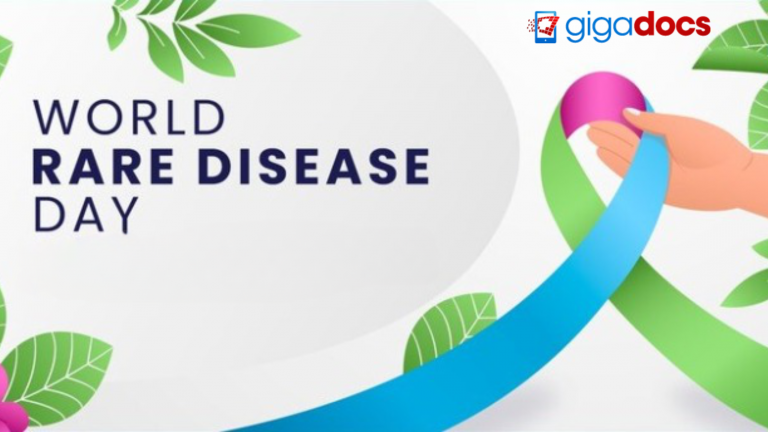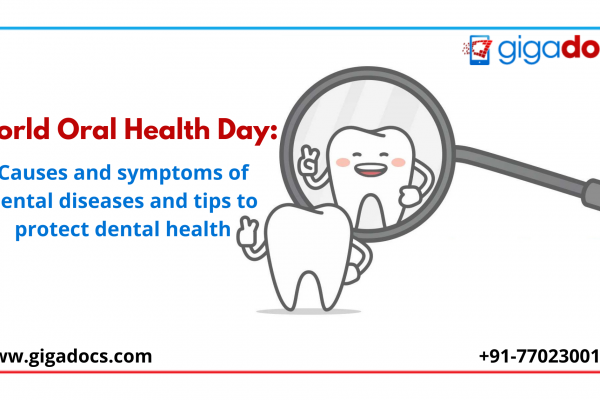Do you know about Orphan disease?
In case you are wondering what it is, let us explain. Orphan diseases, also known as rare diseases, are medical conditions that affect a small percentage of the population, typically fewer than 1 in 2,000 individuals. These diseases are often chronic, life-threatening, and have no known cure.
Orphan diseases affect a very small population, and thus they often receive less research and funding than more common diseases. The term “orphan disease” comes from the fact that these conditions are often “orphaned” by the medical community, with little attention paid to them due to their rarity.
What causes Orphan Diseases?
Orphan diseases can be caused by genetic or environmental factors and may exhibit a wide range of symptoms, depending on the specific condition. Examples of orphan diseases include cystic fibrosis, Huntington’s disease, and muscular dystrophy among others.
It’s important to note that there are many rare diseases that are not well-known or well-studied, and their severity and impact on a person’s health can vary widely. As we have discussed, many rare diseases can be difficult to diagnose and treat, which makes them particularly challenging for patients and their families. Do you know rare diseases can be potentially Fatal? Let’s know more in the next section-
Is Rare Disease a Killer Disease?
The term “killer rare diseases” is not a well-defined medical term, but it is often used to refer to rare diseases that can be life-threatening or have a significant impact on a person’s health and quality of life. Since Orphan diseases affect less than a handful of the population, research to find the cure for the diseases remains limited and sadly many of the diseases we have discussed in the next section have no known cure.
Do Rare diseases mimic Commonly known diseases?
Rare diseases are caused by specific genetic variants, in contrast to most common diseases, which are associated with known bacteria or viruses, or the deficiency of a balanced diet, environmental factors, and so on. However, due to limited research and the unavailability of medical information, symptoms of rare diseases are often confused with commonly known and easily identifiable diseases.
This Rare Disease Day, Gigadocs explains 25 rare diseases whose symptoms are often confused with commonly known diseases. We explain to you how digital consultation can help with the initial consultation of these killer rare diseases-
25 rare diseases that can mimic other more common diseases.
| S No | Rare Disease Name | Impact on the Human Body | Symptoms of this Rare Disease | Same to which common disease? |
| 1 | Pompe disease | A rare genetic disorder that affects the muscles | Muscle weakness, difficulty breathing, and heart problems. | Symptoms can be similar to other neuromuscular disorders, making it difficult to diagnose |
| 2 | Gaucher disease | Affects the metabolism of certain fats in the body, leading to a buildup of these fats in various organs | Enlarged liver and spleen, yellow eye spots, extreme tiredness (fatigue), lung problems. | Can mimic other more common conditions such as arthritis and anemia. |
| 3 | Wilson’s disease | A rare genetic disorder that causes copper to accumulate in the body. | Symptoms lead to liver disease, neurological symptoms, and psychiatric problems. | These symptoms can be similar to other more common conditions such as Parkinson’s disease and schizophrenia. |
| 4 | Hemophagocytic lymph histiocytosis (HLH) | A rare, life-threatening disorder in which the immune system becomes overactive and attacks healthy tissues in the body | Enlargement of the liver, swollen lymph nodes, Jaundice, coughing, and difficulty breathing, stomachache, vomiting, and diarrhea. | Symptoms are similar to Sepsis |
| 5 | Lupus | Is an autoimmune disease. | Joint pain, skin rashes, and fatigue | Symptoms can be like other conditions such as rheumatoid arthritis, fibromyalgia, and chronic fatigue syndrome. |
| 6 | Sjogren’s syndrome | Is an autoimmune disease. | Causes dry eyes and dry mouth, as well as joint pain and fatigue. | Symptoms can be similar to other conditions like chronic fatigue syndrome. |
| 7 | Lyme disease | Lyme disease is a bacterial infection | Causes a wide range of symptoms, including fever, headache, joint pain, and fatigue. | Symptoms can be similar to other conditions such as the flu, rheumatoid arthritis, and fibromyalgia. |
| 8 | Huntington’s disease | Huntington’s disease is a rare genetic disorder that can cause progressive degeneration of the brain | Symptoms include involuntary movements, cognitive decline, and psychiatric problems | Symptoms can be similar to Parkinson’s disease or Alzheimer’s disease |
| 9 | Multiple system atrophy | Is a rare neurological disorder. | Can cause symptoms such as tremors, difficulty with movement, and autonomic dysfunction | May mimic Parkinson’s disease or Alzheimer’s disease. |
| 10 | Von Hippel-Lindau disease | A rare genetic disorder that can cause tumors to develop in various parts of the body. | Symptoms include vision loss, hearing loss, and kidney dysfunction | Mimic diabetic retinopathy or hearing loss caused by aging |
| 11 | Behcet’s disease | Behcet’s disease is a rare autoimmune disease | Can cause mouth and genital sores, eye inflammation, and skin lesions | Symptoms can be similar to herpes or inflammatory bowel disease. |
| 12 | Multiple sclerosis | Is a chronic autoimmune disease. | Affects the central nervous system, causing symptoms such as numbness, tingling, and weakness in the limbs | Symptoms can be similar to other conditions such as fibromyalgia, chronic fatigue syndrome, and depression |
| 13 | Celiac disease | Is an autoimmune disease | Cause digestive symptoms. | Symptoms can be similar to irritable bowel syndrome (IBS) or inflammatory bowel disease (IBD) |
| 14 | Polycystic kidney disease | A genetic disorder | Can cause multiple cysts to form in the kidneys, leading to kidney failure. | Symptoms can be similar to kidney stone pain or urinary tract infections. |
| 15 | Hemochromatosis | Hemochromatosis is a genetic disorder that causes iron to accumulate in the body | Leads to organ damage and other complications. | Symptoms similar to liver disease or diabetes |
| 16 | Fabry disease | Is a rare genetic disorder. | Cases symptoms like pain, fatigue, and skin rashes. | Fibromyalgia or chronic fatigue syndrome |
| 17 | Ehlers-Danlos syndrome | A group of rare genetic disorders | Affects the connective tissues of the body, causing symptoms such as joint hypermobility, skin hyperextensibility, and easy bruising | Symptoms can be similar to arthritis or osteoporosis. |
| 18 | Addison’s disease | Is a rare autoimmune disorder that affects the adrenal glands. | Symptoms such as fatigue, weight loss, and low blood pressure | Depression or chronic fatigue syndrome |
| 19 | Sarcoidosis | A rare inflammatory disease | Can affect multiple organs in the body, causing symptoms such as cough, shortness of breath, and swollen lymph nodes | Sarcoidosis is similar to tuberculosis or lung cancer. |
| 20 | Primary immunodeficiency diseases | Primary immunodeficiency diseases are a group of rare genetic disorders that affect the immune system | Cause recurrent infections, autoimmune diseases, and other complications. | May mimic HIV/AIDS or cancer |
| 21 | Neurofibromatosis | A genetic disorder that can cause tumors to grow on nerve tissue | May cause symptoms like skin abnormalities, bone deformities, and hearing loss | Neurofibromatosis mimics osteoporosis or hearing loss caused by aging or exposure to loud noise. |
| 22 | Acromegaly | Is a rare hormonal disorder | Causes excessive growth of bones and tissues, enlarged hands and feet, thickened skin, and changes in facial features | Symptoms can be similar to gigantism or osteoarthritis |
| 23 | Mastocytosis | Is a rare disorder | Causes an overabundance of mast cells, leading to symptoms such as skin rashes, abdominal pain, and anaphylaxis | Mimics conditions like allergies or autoimmune diseases |
| 24 | Lymphangioleiomyomatosis (LAM) | Is a rare lung disease | Leads to symptoms like shortness of breath, chest pain, and coughing | Symptoms can be similar to asthma or chronic obstructive pulmonary disease (COPD) |
| 25 | Primary biliary cholangitis | Is a rare autoimmune disease | Damages the bile ducts in the liver, causing symptoms like fatigue, itching, and abdominal pain | Mimics conditions such as hepatitis or gallbladder disease |
How can Teleconsultation help in Rare Disease consultation?
We have discussed how rare disease diagnosis and treatment can often be challenging to diagnose. They are not well-known, and their symptoms can overlap with other more common conditions. Tele-communication can help in the consultation of rare diseases. Let’s figure out how-
- Access to specialized doctors: Telecommunication can connect patients with specialized doctors who may not be available locally but can offer expertise and knowledge about rare diseases. Patients can have remote consultations with these doctors, saving time and effort.
- Virtual consultations: Telecommunication lets patients, and their caregivers have virtual consultations with doctors, which can be especially helpful for patients who have mobility or transportation challenges. Patients can use Gigadocs video conferencing, chat, or messaging platforms to communicate with doctors and receive medical advice.
- Sharing of medical information: Gigadocs digital consultation lets patients share their medical history and test results with doctors remotely, which can be especially helpful for rare diseases that require specialized tests diagnosis.
- Remote monitoring: Gigadocs help patients with remote health monitoring, like monitoring vital signs or blood glucose levels, and sharing this information with their doctors in real-time.
Overall, Gigadocs telecommunication can help patients with greater access to specialized medical care and expertise, and enable them to receive timely medical advice, making it a valuable medium for rare disease consultation. Download the Gigadocs app from here-
- IOS App – apple.co/2W2iG4V
- Android App – bit.ly/33AQoRC
To know more e-mail, at info@gigadocs.com




